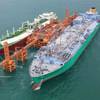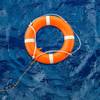Experts in maritime security from governments and industry will gather in London next week at the Headquarters of the International Maritime Organization (IMO) for an inter-governmental meeting devoted to maritime security and counter-terrorism issues.
A special intersessional working group of the IMO’s Maritime Safety Committee (MSC) will convene for a week-long session (February 11th-15th) to begin in earnest the process of reviewing and revising all existing IMO measures and procedures to deal with acts of terrorism which threaten the security of passengers and crews and the safety of ships.
Among the many topics scheduled for discussion will be issues related to the installation of automatic identification systems on ships, the need for security plans for ships, port facilities and off-shore terminals, the need to verify the identity of seafarers and the question of a secure “chain of custody” for containers from their port of origin to their destination.
The meeting could result in a series of changes to existing regulations in important IMO Conventions such as the Safety of Life at Sea Convention (SOLAS) and the revised Convention of Standards of Training, Certification and Watchkeeping for Seafarers (STCW 95). These would be put before the MSC for approval in May and eventually submitted to a special diplomatic conference for adoption, in December this year.
The meeting was triggered by the terrorist attacks in the United States on 11 September 2001, which prompted IMO Secretary-General William O’Neil to submit a draft Assembly resolution calling for the review and expansion, as the need may be, of the existing IMO measures. The Assembly, the Organization’s ruling body, which met in November 2001 adopted the Resolution unanimously, without amendment.
Speaking in advance of the meeting, Secretary-General O’Neil said, “this is a complex and difficult issue and requires thoughtful consideration by experts of many disciplines. At the heart of the problem is the need to ensure that effective security measures can be put in place which at the same time allow the effective flow of people, cargo, goods and raw materials - which underpins the global economy - to continue.”
He emphasized the need for appropriate ship and port security plans and the preparation of guidelines to assess the vulnerability of ports. With regard to the movement of containers, Mr O’Neil pointed out that it involves a variety of different entities and effective security is likely to require action from several of them. He advocated a holistic approach to transport security. “We have to look beyond just the ports and the shipping companies for the solution,” he said “and there is a clear need to understand what the consequences of interrupting the transport chain at any point will be. That is why we are holding this meeting and these are the issues some of the best brains in the transport industry will be discussing next week.”
Subscribe for
Maritime Reporter E-News
Maritime Reporter E-News is the maritime industry's largest circulation and most authoritative ENews Service, delivered to your Email five times per week










